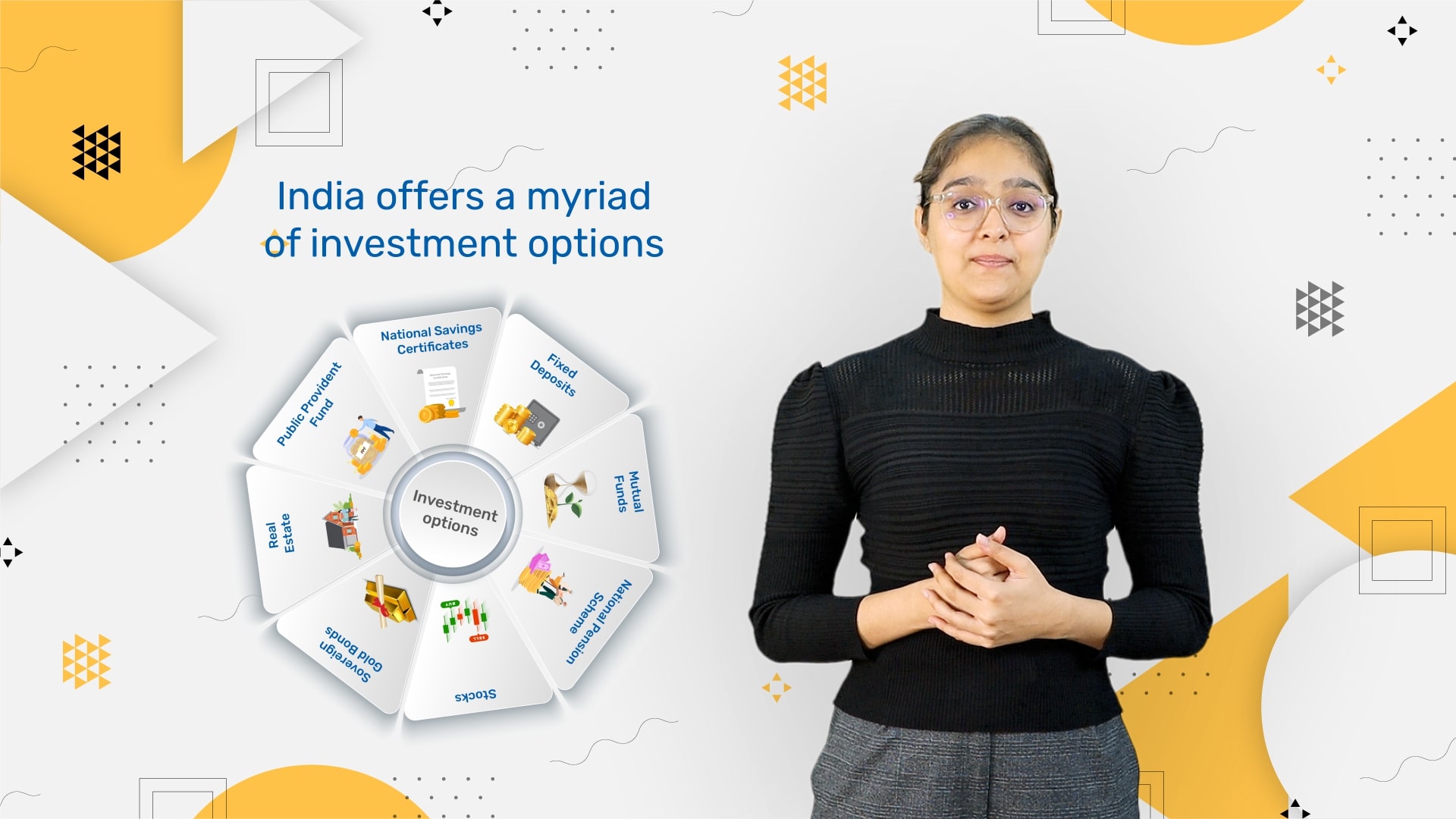Unlocking the Treasure Trove of Investment Options in India
Investing could open a variety of opportunities, each with distinct risks and rewards. In this video, we’ll explore some of the top investment options. From secure choices like fixed deposits and public provident funds to dynamic investments in mutual funds, stocks, and real estate. Each option serves a different purpose and understanding these choices could help you make decisions aligned with your financial goals.
We’ll also discuss essential strategies for successful investing, including the importance of diversification, maintaining an emergency fund, and assessing your risk tolerance. For tax-saving options, we’ll explore government-backed investments like the National Pension Scheme (NPS) and Public Provident Fund (PPF). Such investments could help reduce tax liability while helping you build wealth.
Additionally, this video covers practical tips for effective portfolio management, including regularly reviewing your investments and seeking professional advice when needed. Whether you’re exploring traditional or high-growth investments, learning about India’s financial landscape could empower you to build a tailored investment strategy.

Key Takeaways
Fixed Deposits are secure, long-standing investments that could provide higher interest rates and stability
Mutual Funds might allow you to invest in debt and equity markets, with professional fund managers overseeing the investments
The National Pension Scheme (NPS) could aid in retirement savings and might allow you to claim tax advantages
Stocks could offer you a way to own a part of a company, with potential earnings from dividends and capital gains
Sovereign Gold Bonds (SGBs), backed by the government, enable gold investments without the need to own physical gold
Real estate investments allow for property purchases and might offer rental income or potential capital growth
The Public Provident Fund (PPF) is a long-term savings scheme that might allow you to invest for a longer duration and enjoy tax benefits
National Savings Certificates (NSCs) are government-backed and could provide fixed interest rates
What to Watch Next
Bites
































